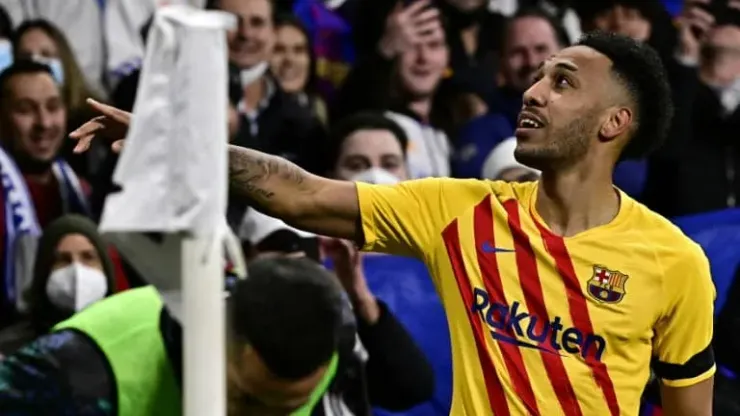Madrid (AFP) – Real Madrid won La Liga on Saturday after a dominant season in Spain left their rivals unable to keep up.
Here, AFP Sport looks at where Barcelona, Atletico Madrid, Sevilla, Real Sociedad and Real Betis all went wrong as Real Madrid cruised to their 35th league title.
– Barcelona –
Barca won only four of their opening 12 games under Ronald Koeman and never recovered, handing Real Madrid an early advantage they would never make up.
By the time Xavi Hernandez was appointed in November, the Catalans were ninth, 10 points off the top, and while there was an upturn following the return of the club’s legendary midfielder, Madrid never succumbed to the kind of collapse necessary to allow Barcelona back in.
For the first half of the season, Barca struggled for chances and goals, their play too stodgy and predictable to open teams up.
The arrival of Pierre-Emerick Aubameyang and the revival of Ousmane Dembele led to a surge in the spring, which included thrashing Madrid 4-0 at the Santiago Bernabeu, but just as hope of a comeback began to grow, Barca fizzled out. A disappointing dip in recent weeks shows there is work still to do.
– Atletico Madrid –
Atletico kept pace with Real Madrid in the early weeks of the season and many believed the reigning champions would challenge again.
Luis Suarez had six goals before the end of October and last-minute wins over Espanyol, Getafe and Osasuna suggested Atleti might have that grit, and luck, traditionally associated with champions.
But narrow victories quickly gave way to draws and defeats, as Atletico lost four consecutive league games in December for the first time ever under Diego Simeone.
There were doubts about style, identity and Simeone’s future — a crisis meeting after another loss at home to bottom-club Levante cleared the air, with the top four now back in their grasp, but Real Madrid were out of sight by then.
– Sevilla –
For the majority of the season, Sevilla were Real Madrid’s closest, and only, genuine challengers, keeping pace with Carlo Ancelotti’s side long after others had fallen away.
At the end of October, they were one point behind with a game in hand, the first of several moments when it felt like Sevilla were a good run away from putting Real under serious pressure.
Every time, they blinked, failing to capitalise when Madrid slipped up and, eventually, crumbling as Madrid pulled away.
In January, Sevilla kept Diego Carlos and signed Anthony Martial, a signal that the club at least believed there was an opening to be exploited. On the pitch, there seemed to be a lack of belief this title could really be theirs and in the end, Sevilla were nowhere near.
– Real Betis –
Betis were third at the season’s halfway point and a strong run at the turn of the year had them only five points off the top in January, with a game in hand.
But consecutive defeats by Sevilla and Atletico extended Betis’s poor record against the top teams and ended any faint hopes of challenging for the title.
Their run in the Copa del Rey also took some of the emphasis away from the league but beating Valencia to win the cup in April confirmed what has been an excellent season for Manuel Pellegrini’s side.
– Real Sociedad –
The Basque club were one of the early frontrunners, even sitting top after 13 games played in November.
Imanol Aguacil’s team are renowned for free-flowing, attacking football but some hard-fought victories in the first three months of the season prompted some to wonder if they had added the guile needed to make a sustained challenge.
Those hopes were dashed, though, during a disappointing run either side of Christmas, but a better run in the last couple of months means La Real should still finish in the top six and qualify for Europe.
200+ Channels With Sports & News
- Starting price: $33/mo. for fubo Latino Package
- Watch Premier League, Women’s World Cup, Euro 2024 & Gold Cup
The New Home of MLS
- Price: $14.99/mo. for MLS Season Pass
- Watch every MLS game including playoffs & Leagues Cup
Many Sports & ESPN Originals
- Price: $10.99/mo. (or get ESPN+, Hulu & Disney+ for $14.99/mo.)
- Features Bundesliga, LaLiga, Championship, & FA Cup
2,000+ soccer games per year
- Price: $5.99/mo
- Features Champions League, Serie A, Europa League & Brasileirāo
175 Premier League Games & PL TV
- Starting price: $5.99/mo. for Peacock Premium
- Watch 175 exclusive EPL games per season






